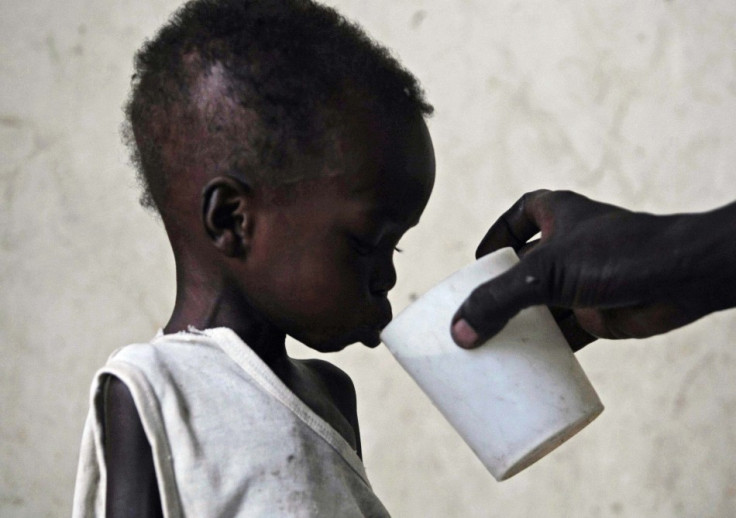Downing Street Hunger Summit, the Olympics and the Brazilian Connection [BLOG + VIDEO]

With the main event fully under way after blasting off in a blaze of glory and farm animals, the sideshow can now begin. Over the next two weeks, London will gear up for another international event, the Downing Street hunger summit on August 12.
The idea is to take advantage of the international focus on the Olympics and steer some of it into fighting hunger and malnutrition around the world. Countries who want help are told they must commit to "transparency and good governance", and then they stand a chance of getting this help through private sector investment.
It's no coincidence that bad governance and poverty go hand-in-hand. One encourages the other. Poverty means lack of power, allowing little opportunity to rein in bad government, and without the checks and balances of a strong populace, corruption and inequality are allowed to propagate.
International scolding and wrist-slapping have no chance of breaking this cycle. But what does? One thing the Davos summit, which is informing the Downing Street event, got right was that private investment is the only way to implement change in the current world set-up. Hunger and malnutrition are essentially linked to inequality, and private investment is the only key to real wealth distribution currently at the world's disposal.
Rising demand for food
While the supply of money is one hunger issue that needs to be addressed, rising demand for food is another. We've all seen the population growth figures, but these have also to be seen in context with the rising middle class in the emerging nations. This is leading to a burgeoning demand for meat protein-based food which puts further strain on the arable sector in terms of animal feeds. Couple this with water issues and the result is, that word again, unsustainable.
Brazil used to be a watchword for world poverty and inequality, and although it still has its social problems it is now the number one emerging nation, with western economists peering curiously at its inner workings. While the UK economy shrinks, Brazil is, according to recent figures, looking forward to an annualised growth rate of 4 per cent.
So what happened there? A boom in the key commodity prices, including gold, oil, iron ore and soya, fuelled by Chinese demand, was a factor, but perhaps more important was a willingness to be open to investment by simplifying trade terms, and embracing new technology and business models. Efforts to control inflation also helped. Compare this to the metaphorical knee in the groin that welcomes investors to Argentina or Venezuela.
The Brazilian soya bean industry is now the world leader, based on the use of cheap land, relatively cheap labour, recycling farming waste to produce energy, and, controversially in Europe, GM technology. There is evidence that the wealth is filtering down, and the Brazilian government has stepped up welfare and education initiatives, which can only lead to long-term change.
While western economies are struggling with double-dip recession, Brazil's main worry is an overheating economy. Technology and investment have been the keys to this South American success. Whatever solutions and ideas emerge about world hunger during the London Olympics period, we might get a better idea by looking ahead to 2016 to see what advice the Brazilian hosts can offer then.
Henry Creagh is an account director with Kendalls Communications
© Copyright IBTimes 2025. All rights reserved.





















